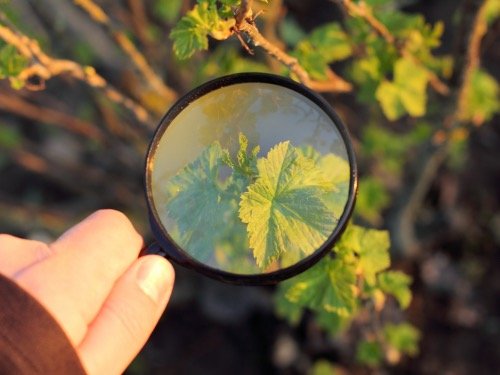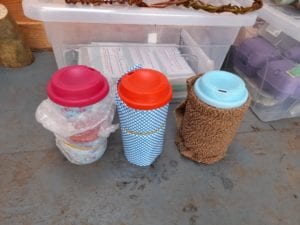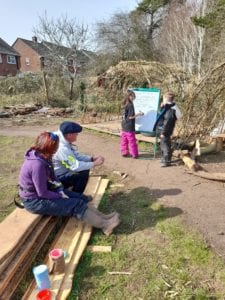
Last week I was able to satiate my curiosity about approaching literacy outdoors as we celebrated World Book Day at The Outdoors School. Now, it’s British Science Week so it only seemed right to get in touch again and ask more questions – this time about how they incorporate science into an outdoor curriculum! And I knew just the person…Daisy Thomas, Site Lead and Curriculum Tutor at The Outdoors School, who was kind enough to spare some time to let me pick her brains. Here’s what I found out…
 Project Based Learning
Project Based LearningDaisy explained to me that the primary vehicle for learning at The Outdoors School is project based. Each half term, a theme is chosen for the whole school and our staff adapt it to the needs of our smaller groups of learners. This term, the theme is ‘Stuck on an Island!’ Each group of learners have taken this theme and run it with, personalising it according to the needs and interests of those within each group.
One group ‘Scots Pine’, based at Tiverton have chosen a polar island for their subject as one of their learners loves penguins! This has led to some fantastic scientific learning including:
Another group, ‘Buzzard’ from Shillingford have chosen a desert island. Some of their activities so far have included:
Next term, the schools theme is ‘Lost in the City’ and I can’t wait to catch up with them in a few months to see how they interpret this for their learning sessions.
 Future Scientists
Future ScientistsI asked Daisy about whether these activities would be purely physical or whether they were recorded in any way. She explained that just like research scientists, learners write up their experiments once results have been observed and recorded. For some learners, this might be a formal written report but for others, it may involve a storyboard, pictures or a collaboration with staff to produce a record that they are satisfied with.
By allowing flexibility in how they conclude their experiments, learners are encouraged to engage with science in a way that is accessible to them. STEM Coordinator, Sophie Hansen, is planning to nurture this excitement for science further and a School Science Fair is scheduled for June 15th as part of the Great Science Share Day. We’ll definitely touch base with Sophie again then and come back to tell you all about it!
The fantastic thing about project based learning is that it joins the dots between different subjects and encourages a holistic approach to education. Take a project on trains for example. You could look at engineering and design, mathematics, history, literature (without even thinking about it I could give you several books with trains featured!), geography and perhaps even film and TV. Rather than covering one subject at a time and trying to ignore any blurred lines with others, it encourages a broad all encompassing approach that actually makes sense to young minds. It encourages questions to be asked, answers to be discovered, connections to be made.
Arguably, science is incorporated into every element of learning, regardless of what ‘subject’ us stuck-in-our-ways-grown-ups might think is on the timetable that day. Science is defined as the study ‘of the structure and behaviour of the physical and natural world through observation and experiment.’ Which is pretty much everything our young people do, without even thinking about it, particularly in an outdoor learning environment. Our learners are constantly asking questions, making observations and experimenting with their surroundings. So really, the answer to my question of how they ‘do science’ is, how could they not?
Author: Collaboration between Daisy Thomas, Site Lead & Curriculum Tutor at The Outdoors School and Hannah Durdin, Forest School Leader & Administrator
Date: Friday 12th March 2021
Copyright © Outdoors Group Ltd 2021. All Rights Reserved.
Registered Office: The Outdoors Group, Western Lodge, Crediton, Devon, EX17 3NH. Company number 10755829
Terms & Conditions / Website Terms / Privacy Policy / Sitemap / Built with ♥ by Solve